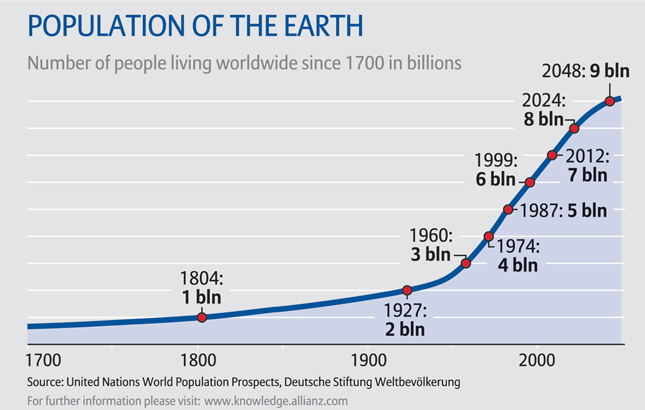-
Frank Carini, ecoRI News
7 Billion and Counting: Roger-Mark on Global Population Concerns at Future of Nature Forum
June 10, 2014 By Wilson Center Staff
Since the start of the Industrial Revolution some 250 years ago, the widespread use of chemical fertilizers and pesticides that began about a century and a half later and the atomic half-life of the past seven decades, humans have developed and doused land and dammed and diverted water. These practices have left a wound that continues to fester as the human population swells.
Artificial fertilizer and the commercialization of industrial nitrogen changed the world significantly, according to author Alan Weisman, who was a panelist at The Nature Conservancy’s first forum in its 2014 Future of Nature Boston Speaker Series. “Forty percent of us wouldn’t be here without it,” he said.
The global population is closing in on 7.2 billion – a mere 15 years ago it was at 6 billion. Earth’s human population is expected to exceed 9 billion by 2050. While global population growth must be part of the conversation about sustaining the planet, it is seldom discussed. The issue is largely ignored at our own peril.
Some 40 years ago, human population was at the forefront of many discussions, because it was seen then as a barrier to economic growth, said Andrew Foster, director of the Population Studies and Training Center at Brown University. Today, environmental concerns associated with population growth don’t have the same place on the global agenda, he said.
Continue reading on ecoRI News.
Sources: ecoRI News, The Nature Conservancy.
Image Credit: University of Pennsylvania and Allianz, via ecoRI News.
 A Publication of the Stimson Center.
A Publication of the Stimson Center.



